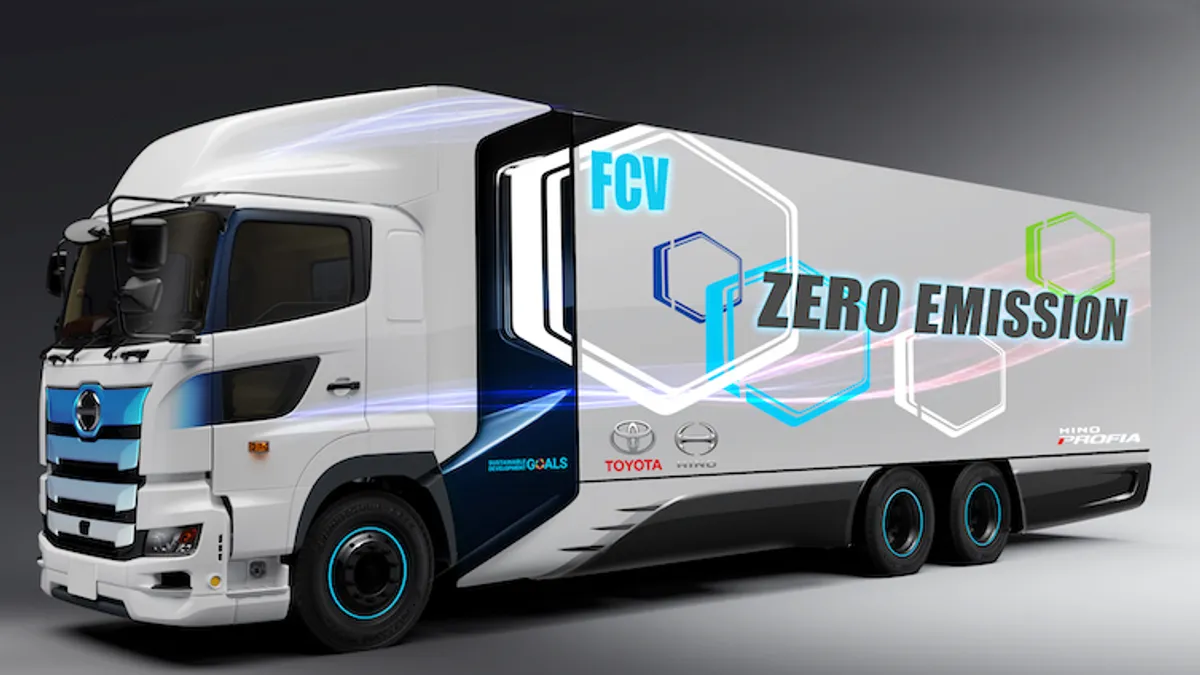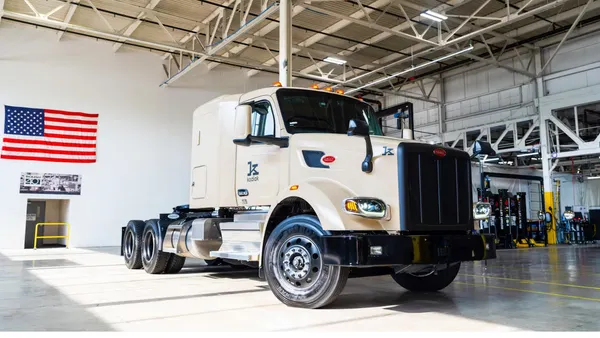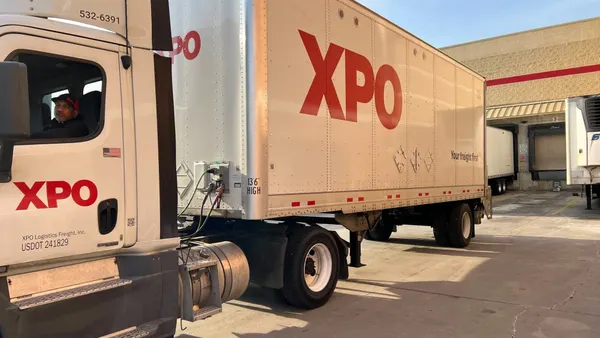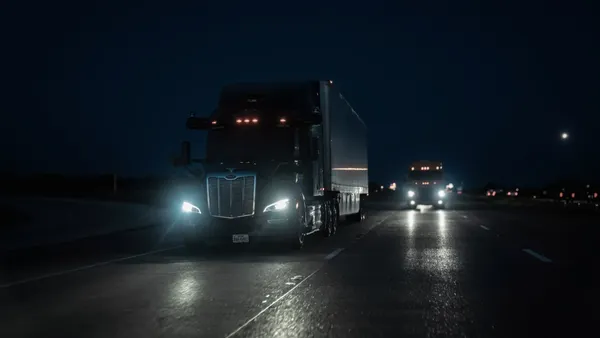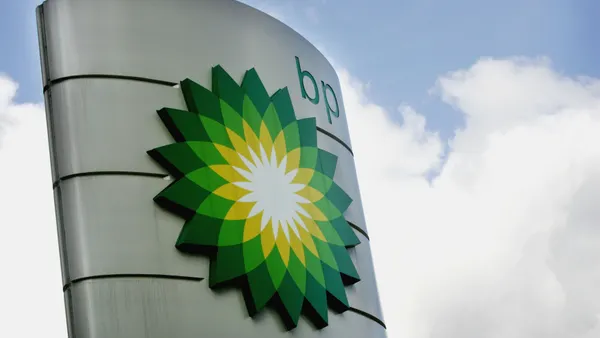Dive Brief:
- Toyota and Hino Motors said on Monday they are teaming up to build a heavy-duty commercial truck powered by hydrogen fuel cells. The first prototypes should be on Japan's roads later this year, they said.
- While key industry players, such as Daimler Trucks North America's CEO, say they prefer electric batteries as the future fuel model for Class 8 trucks, players such as Nikola, Hyundai and Toyota have said they like hydrogen-electric fuel cells, which are lighter but require refueling stations. As of right now, hydrogen refueling stations don't exist in large numbers.
- The rollout in Japan is part of a long-term plan by Toyota, which owns a majority share in truck maker Hino, to reduce its vehicle emissions by 90% by 2050. The Toyota emissions plan will affect U.S. trucking too, as the company is putting an additional 10 heavy-duty trucks powered by hydrogen fuel cell on the roads of California, part of a venture with Paccar's Kenworth Trucks called Project Portal.
Dive Insight:
The trucking industry continues to compete on a vision for emission-free transport in North America, Europe, Asia and elsewhere. But there is no consensus on what works best.
In April 2019, Roger Nielsen, the CEO and president of the largest U.S. truck maker, Daimler Trucks, said his firm would focus on battery-electric vehicles for future development.
Toyota, Nikola and Hyundai favor hydrogen fuel cells, which create electric power and produce water as an emission. But trucks need more hydrogen after a long journey, just as diesel-powered trucks need to refuel. Still, that snag has not discouraged Toyota, which is pursuing fuel cells for future Class 8 trucks over battery-electric trucks, which have limited range and require recharging.
Toyota and Hino said in a Thursday blog post a modified Hino Profia truck will use two Toyota fuel cell configurations. A new large-capacity, high-pressure hydrogen tank will be developed to enable a proposed 370-mile cruising range. Hydrogen has a high energy density, making it an effective fuel for the demands of a heavy-duty truck, Toyota and Hino said.
Cargo carrying is key, Toyota and Hino said in the blog post. So, the new truck's chassis has been specially designed to incorporate all the elements of the electrified powertrain (fuel cell stacks, hydrogen tank, AC motor and lithium-ion battery) while maintaining load capacity.
Toyota is also involved with Kenworth Trucks in Project Portal, a collaboration with the Port of Los Angeles and the California Air Resources Board (CARB). The two truck makers unveiled the first of Toyota and Kenworth’s jointly developed fuel cell electric heavy-duty trucks at a port event in April 2019, according to a Toyota press release.
The trucks have an estimated range of more than 300 miles per fill, twice that of a typical drayage trucks’ average daily duty cycle, Toyota and Kenworth officials said. Toyota and Kenworth will use the 10 trucks to haul cargo received at the Ports of Los Angeles and Long Beach, moving the cargo throughout the Los Angeles area.


